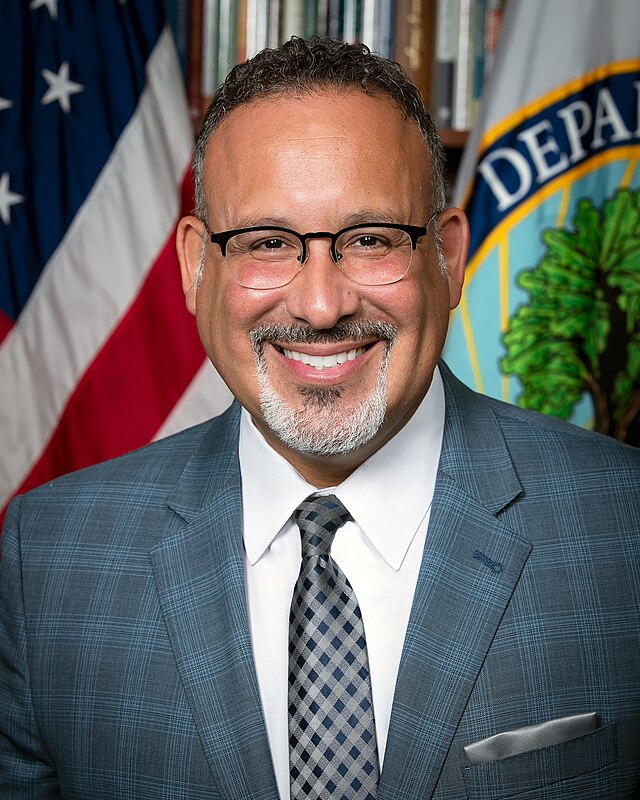
By
Having spent months fixing the botched overhaul of the online Free Application for Federal Student Aid, Education Secretary Miguel Cardona has a message for Black college-bound students: Don’t bypass the FAFSA like he did when he headed off to college.
“I definitely left money on the table,” Cardona told Word In Black on Tuesday. As the first in his family to attend college, Cardona says, he didn’t realize how much the FAFSA, and the federal aid it brings, could have eased the sting of his tuition bills.
Fixing the FAFSA
Now, after some nine months of fixing bugs, untangling errors, and clearing millions of backlogged applications, Cardona wants Black students to take full advantage of the program. So he’s spreading the word, touting steps the White House has taken to make things easier.
“We have a nationwide strategy to get students from Black communities to fill out FAFSA,” including financial support for churches and grassroots organizations to hold clinics for high school seniors, he says. “We increased the ease of filling out FAFSA because over 80% of our Black borrowers are Pell eligible,” he says, referring to a federal grant program.
“We have to do all of the above, in order to address the negative actions taken by many Republicans to limit education or defund it so that it becomes a private entity.”
Education Is on the Ballot
With a hotly-contested election looming between his boss, President Joe Biden, and former President Donald Trump — a high-stakes race that could hinge on Black voter turnout — Cardona made the rounds of Black newspapers, outlining what his department has done to tackle racial disparities in education.
In a call lasting around 10 minutes, Cardona spooled off a list of the Biden administration’s accomplishments, ranging from student loan forgiveness (“Black borrowers have gotten debt relief at a higher proportion than many other groups,” he says) to addressing the Supreme Court’s 2023 decision dismantling affirmative action as a factor in college admissions.
Although he respects the high court’s authority, “We are fighting that (decision) tooth and nail,” Cardona says. “We are fighting what we perceive to be a potential lack or lessening of students of color going into our campuses.”
To counter that drop, “what we’ve done at the Department of Education is bring together college leaders to communicate obligations and make sure that their campus reflects the diversity of our country,” Cardona says. His department has issued guidelines to colleges on how to admit more students of color while still respecting the rule of law.
“We’re giving them strategies, we’re lifting up examples of what (other) colleges are doing to attract Black and brown students,” Cardona says. “We’re encouraging presidents to be very intentional about attracting black talent into their schools, because we know a diverse campus is a better campus.”
Not long after the Supreme Court ruling, “we had a summit at the Department of Education over the summer” to strategize about how to work around the high court’s ruling, Cardona says. “We brought people from all over the country — leaders that know how to do it well. We put together guidance, giving (other college presidents) strategies on what they could do to attract black talent” to their campuses.
“Look at the Facts”
When asked about what the Ed Department has done to improve education for Black Americans, Cardona didn’t hesitate.
“What I would say is, look at the facts,” he said, including billions in student debt relief, billions more for urban K-12 schools in pandemic-relief funds, and $15 billion for HBCUs. “No other president comes close.”
While he acknowledged “we need to do more,” Cardona also pointed to the ballot box. If Black people want the improvements to continue, he says, they need to vote in November.
“We need a Congress that understands that their role is to support that,” he says. “If folks look under the hood a little bit, they’ll see that when you have a Republican-controlled House that wants to cut Title I dollars to inner city schools, that’s what we’re up against. So we’ve — I think we’ve done a great job.”
What grade would he give himself?
“I’ll let others grade me,” he says “I’m going to focus on making sure that I do everything I can” to improve education.



